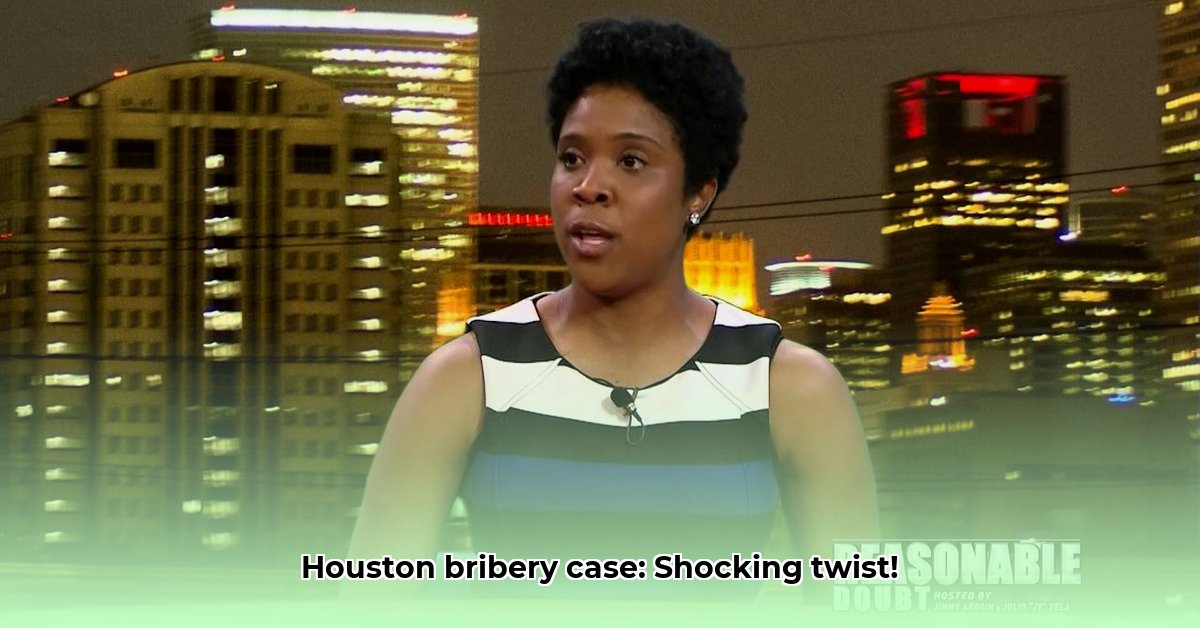
Prominent Houston attorney Monique Sparks' recent withdrawal from representing William-Paul Thomas, a former city official facing bribery and conspiracy charges, has sent shockwaves through the legal community. This unexpected development throws a significant wrench into an already complex case, raising questions about legal strategy, ethical considerations, and the potential for further delays.
The Withdrawal: A Pivotal Moment
Sparks' September 22nd filing to withdraw from representing Thomas cites both client non-compliance and a newly arisen conflict of interest. While the specifics remain undisclosed, this move has escalated the uncertainty surrounding Thomas's already protracted sentencing process, initially slated for 2022 but delayed five times. This case now presents a crucial case study into the intricacies of attorney withdrawal in high-stakes federal bribery cases in Texas.
The Thomas Case: A History of Delays
William-Paul Thomas, formerly a Director of City Council Relations, pleaded guilty to bribery and conspiracy charges in 2022. The repeated postponements of his sentencing have fueled speculation, ranging from ongoing cooperation with investigators to unforeseen complexities within the case itself. Sparks' withdrawal adds another layer of uncertainty to this already convoluted timeline. How will this impact the already delayed sentencing process?
Unraveling the Conflict: Speculation and Uncertainty
The lack of detail surrounding the conflict of interest cited in Sparks' filing leaves much to the imagination. Did a disagreement over legal strategy emerge? Did new evidence surface, creating an irreconcilable conflict? Or is there a more significant, yet undisclosed, issue at play? The opacity surrounding the reasons for the withdrawal only increases public fascination and scrutiny.
Implications of the Withdrawal: Delays and Challenges
Thomas now faces the immediate challenge of securing new legal representation, a process that can be both time-consuming and resource-intensive. This delay has significant ramifications; it further postpones sentencing and introduces potential complications into the ongoing investigation. The process of finding and onboarding a new attorney for such a high-profile, complex case promises significant delays. How long might this delay the legal proceedings?
Legal Analysis: Navigating Attorney Withdrawals in Texas
Texas Rules of Civil Procedure govern attorney withdrawals, demanding "good cause" and a formal process involving written motions and court notification. The ethical considerations outlined in the Texas Rules of Professional Conduct further complicate matters, particularly regarding conflicts of interest and the potential impairment of professional judgment. The intricacies of these rules, and their application within the context of complex federal bribery cases, are critical to understanding the current situation. How does Texas law specifically address this type of conflict?
Expert Commentary: Perspectives on the Case
"[Quote from Legal Expert 1, Name & Title, Institution - Providing insight on the potential legal ramifications of the withdrawal and the implications for Thomas’s defense.]"
"[Quote from Legal Expert 2, Name & Title, Institution - Addressing ethical considerations and the potential impact on public perception of the justice system.]"
The lack of transparency surrounding the conflict between Sparks and Thomas makes it difficult to definitively conclude what happened. Legal experts have differing opinions on how this will likely play out in the long term.
Conclusion: An Uncertain Future
The withdrawal of Monique Sparks leaves William-Paul Thomas's case in a state of flux. The need for new counsel guarantees delays, and the undisclosed nature of the conflict casts a long shadow over the proceedings. This case serves as a compelling illustration of the intricacies and potential pitfalls within the attorney-client relationship, particularly in high-stakes federal criminal cases, and raises serious questions about transparency and fairness within the justice system. The outcome of this significant development remains uncertain, but it is a landmark case study on the complexities of attorney-client relationships and the legal processes surrounding withdrawal in cases of this magnitude. The future developments in this case will undoubtedly be closely scrutinized by legal professionals and the public alike.